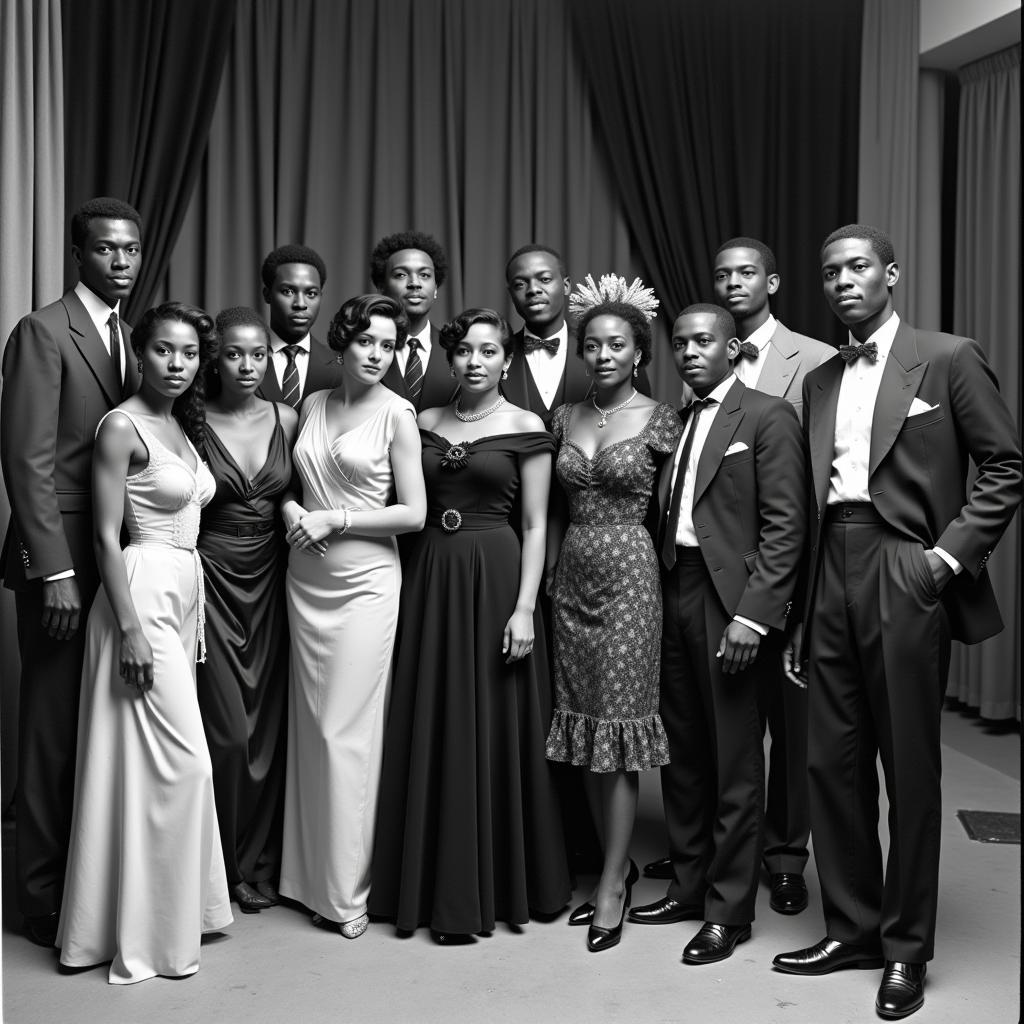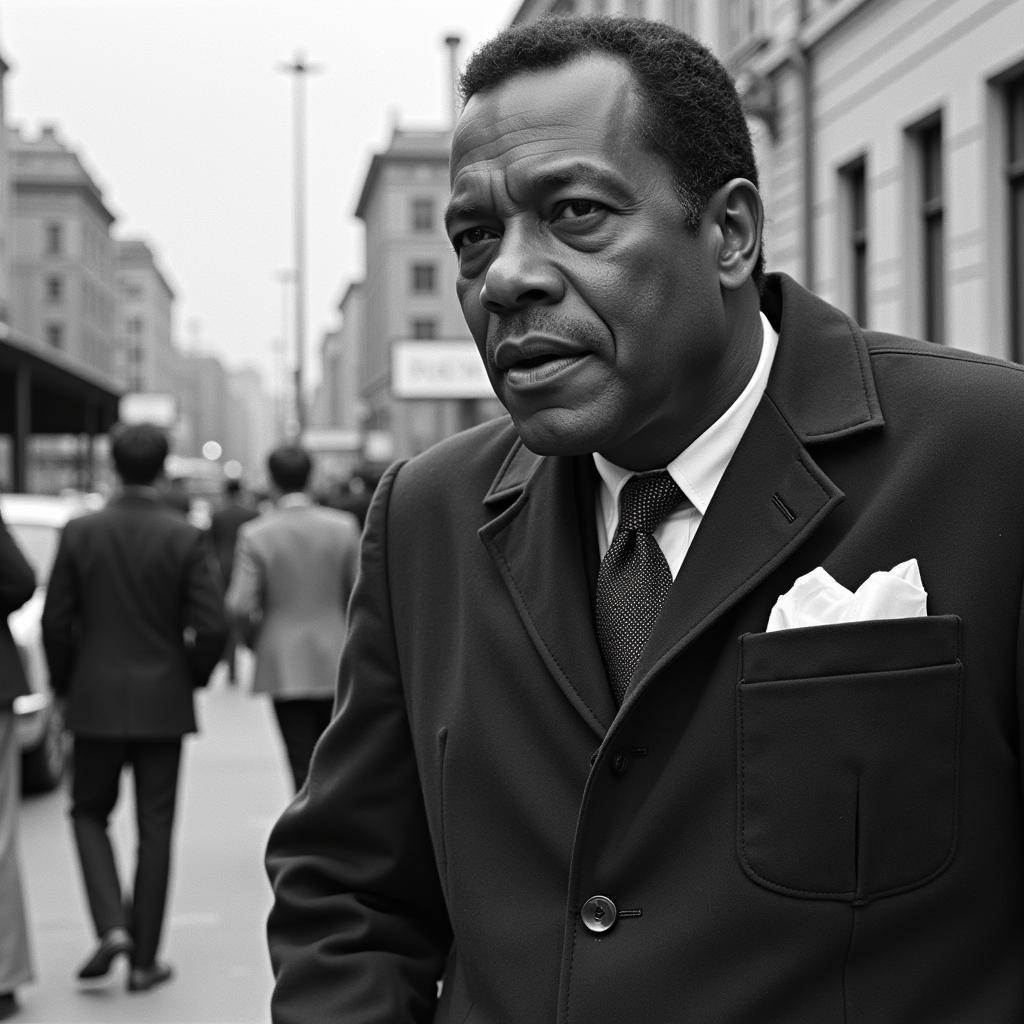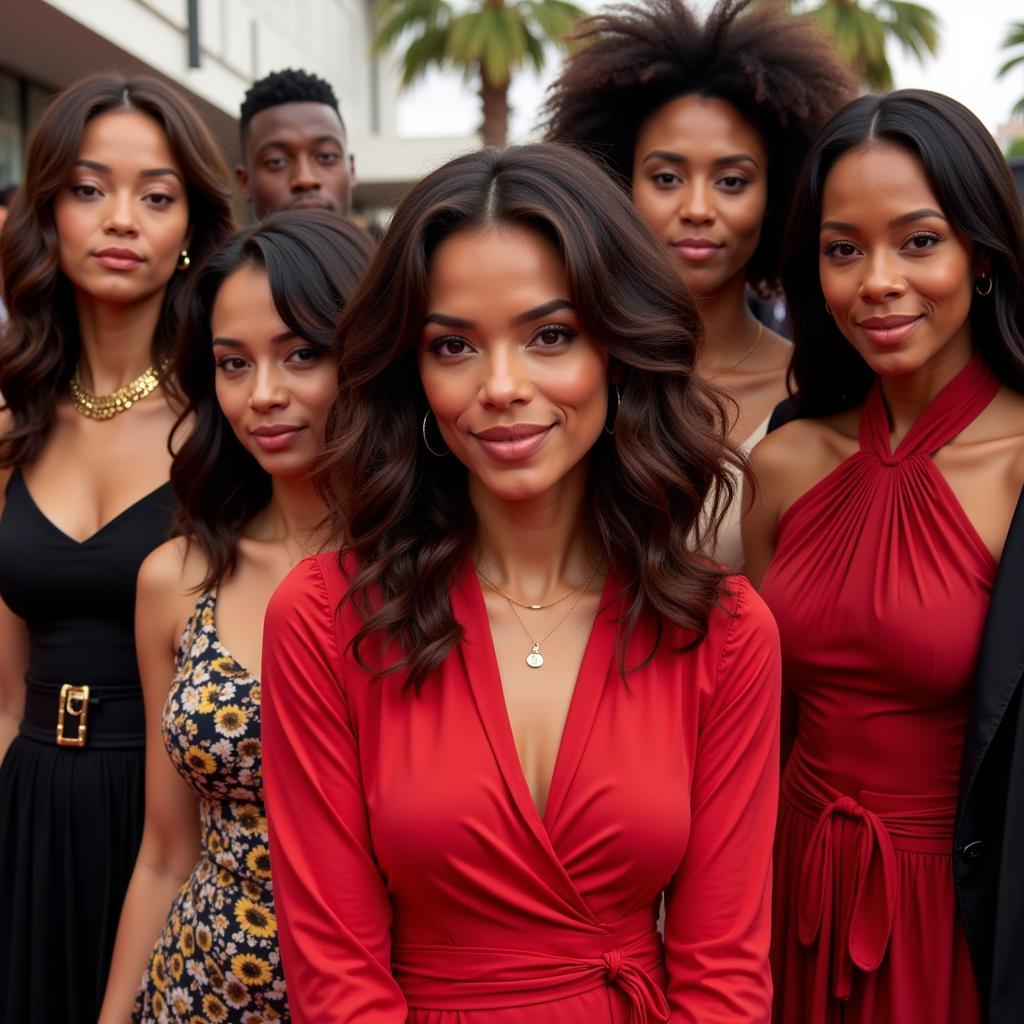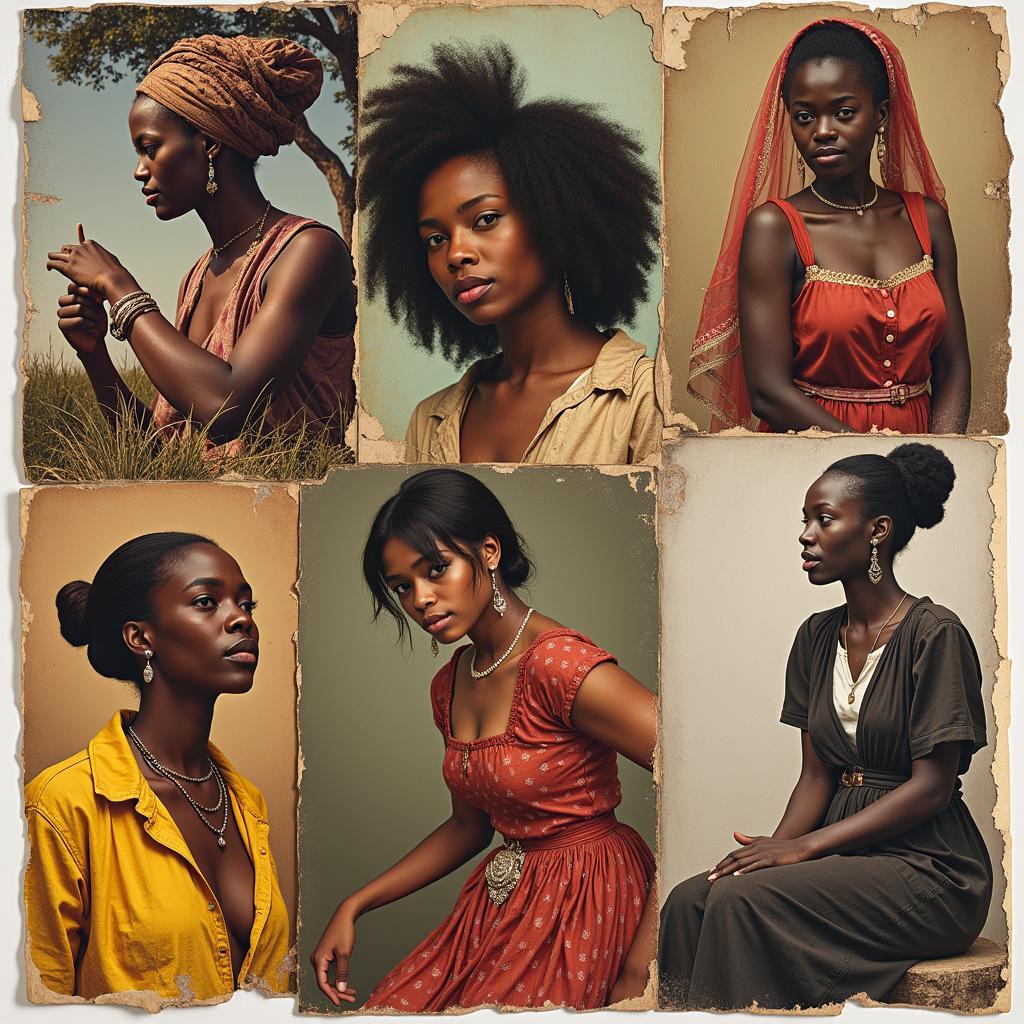African Americans in Film and Television: A Story of Triumph and Struggle
From the early days of Hollywood, African Americans have played a vital role in film and television, though that role has often been fraught with challenges and limited by persistent stereotypes. This article delves into the history of African Americans in the entertainment industry, exploring the triumphs, struggles, and evolving representation of Black experiences on screen.
A History Marred by Stereotypes
The early 20th century saw the rise of cinema, but it also witnessed the reinforcement of harmful stereotypes about African Americans. Minstrel shows, with white actors in blackface, perpetuated racist caricatures. Even as Black actors began to appear in films, they were often relegated to playing subservient roles like maids, butlers, and sharecroppers, reflecting the prevailing racial prejudice of the time.
 Early Black Actors in Hollywood
Early Black Actors in Hollywood
Breaking Barriers: Pioneers of Black Cinema
Despite the obstacles, determined individuals emerged, striving to reshape the narrative. Oscar Micheaux, a visionary filmmaker, produced, directed, wrote, and distributed his own films during the 1920s and 30s, offering a counter-narrative to the prevalent stereotypes. His films featured complex Black characters and addressed social issues often ignored by mainstream cinema.
The 1940s saw Hattie McDaniel become the first African American to win an Academy Award for her supporting role in “Gone with the Wind.” However, her win was bittersweet, as she was still confined to playing stereotypical roles due to the limited opportunities available to Black actors at the time.
The Civil Rights Era and Its Impact
The Civil Rights Movement of the 1950s and 60s brought about a societal shift that began to influence the entertainment industry. Sidney Poitier’s emergence as a major star challenged racial barriers. His dignified portrayals in films like “The Defiant Ones” and “Guess Who’s Coming to Dinner” paved the way for more nuanced and complex representations of Black characters.
 Sidney Poitier on a Film Set
Sidney Poitier on a Film Set
Blaxploitation and the Rise of Black Power
The late 1960s and early 70s witnessed the Blaxploitation genre, a controversial but significant movement in Black cinema. Films like “Shaft” and “Super Fly” featured Black protagonists in action-packed narratives, often set against urban backdrops. While criticized for sometimes perpetuating stereotypes, Blaxploitation provided opportunities for Black actors, directors, and writers, and gave voice to Black audiences often ignored by Hollywood.
The New Black Wave and Independent Voices
The late 20th and early 21st centuries saw the rise of a new wave of Black filmmakers and actors who brought fresh perspectives and diverse stories to the screen. Spike Lee, John Singleton, and Julie Dash, among others, challenged conventions and addressed complex social and political issues through their work.
This era also witnessed the emergence of independent Black cinema, offering even greater creative freedom and exploring a wider range of themes, from LGBTQ+ experiences to the African diaspora.
The Contemporary Landscape: Progress and Ongoing Challenges
Today, African Americans are more visible than ever in film and television. From box office hits like “Black Panther” and “Get Out” to critically acclaimed television shows like “Atlanta” and “Insecure,” Black creatives are pushing boundaries and achieving unprecedented success.
 Modern Black Actors on the Red Carpet
Modern Black Actors on the Red Carpet
However, challenges remain. The fight for equal representation both on-screen and behind the scenes continues. Diversity in storytelling, casting, and crew positions remains a pressing concern.
The Future of African Americans in Film and Television
The journey of African Americans In Film And Television is a testament to their resilience, creativity, and unwavering pursuit of telling their stories authentically. As the industry continues to evolve, it is crucial to support and amplify Black voices, ensuring that diverse perspectives are celebrated and that future generations inherit a media landscape that reflects the richness and complexity of the world we live in.
Do you want to learn more about the contributions of African Americans in entertainment? Check out these articles:
- Explore the cultural impact of African American comedy films.
- Discover the fascinating world of African American vernacular English features in film and television.
- Delve deeper into African American culture in the United States and its portrayal in media.


